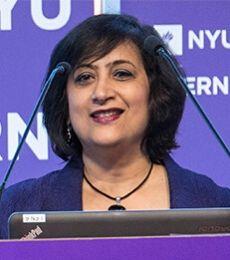Opinion
When More Information Leads to More Uncertainty
—

By Geeta Menon and Ellie J. Kyung
Will colleges and universities restart in-person classes this fall? Will there be a vaccine for the novel coronavirus soon? Will there be second wave of the virus? Do I wear a mask outside even if I plan to socially distance? How can I figure out which news sources and leaders to trust?
Every day we are faced with a torrent of information from news articles, cable networks, social media, the White House, the Center for Disease Control – and yet, there are no clear answers.
As humans, we innately find uncertainty to be an aversive state and are motivated to reduce it, even at a cost. Research has shown that people are calmer and less agitated when they know they are going to receive an electric shock than when they know there is a 50% chance they might receive an electric shock. Similarly, the threat of perceived job insecurity has more detrimental health effects than actually losing a job.
Read the full Harvard Business Review article.
___
Geeta Menon is Abraham Krasnoff Professor of Global Business, Professor of Marketing and Dean Emeritus, NYU Stern Undergraduate College
Every day we are faced with a torrent of information from news articles, cable networks, social media, the White House, the Center for Disease Control – and yet, there are no clear answers.
As humans, we innately find uncertainty to be an aversive state and are motivated to reduce it, even at a cost. Research has shown that people are calmer and less agitated when they know they are going to receive an electric shock than when they know there is a 50% chance they might receive an electric shock. Similarly, the threat of perceived job insecurity has more detrimental health effects than actually losing a job.
Read the full Harvard Business Review article.
___
Geeta Menon is Abraham Krasnoff Professor of Global Business, Professor of Marketing and Dean Emeritus, NYU Stern Undergraduate College
